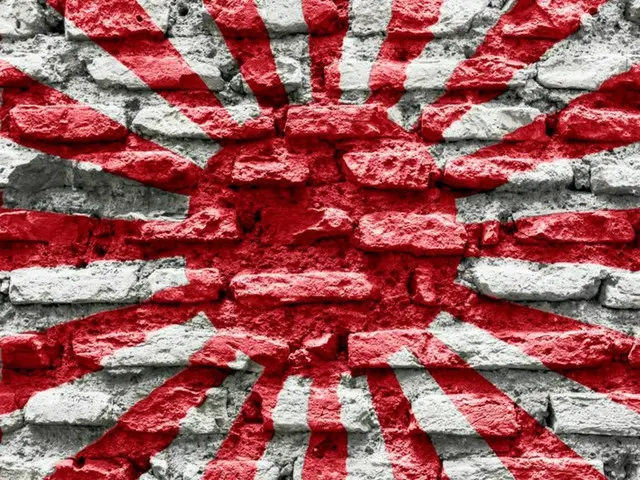Last month, an apartment building in Busan, southern South Korea, caused controversy when the Rising Sun Flag was raised on Memorial Day, a day to commemorate martyrs and fallen soldiers. In South Korea, the Rising Sun Flag is seen as a symbol of the Japanese Empire.
Some see it as a symbol of righteousness, and many Koreans find it repulsive. However, there are no penal laws in Korea that are related to the Rising Sun Flag.
In Korea, the Rising Sun Flag is considered to be "the flag of the Japanese military used in the invasion of Asia during World War II, and
The Rising Sun Flag is seen as a clear political symbol that recalls the wounds of history for many countries. For this reason, there have been many "Rising Sun Flag affairs" in the past. In December last year, the International Football Association
For a time, the Rising Sun flag was used in the background of an image introducing Japanese players on the FIFA World Cup official social media account, sparking a flurry of complaints from Korean internet users to FIFA.
The image was later deleted. In May of this year, the International Paralympic Committee (IPC) streamed a video of a world-class para ice hockey player on their official YouTube channel.
The Korean Disabled Athletes' Association protested to the IPC after a video of Kwon's match featured a Japanese athlete in a caption with the Rising Sun Flag logo.
Furthermore, on the 6th of last month, while South Korea celebrated Memorial Day, a day to commemorate martyrs and fallen soldiers,
A rising sun flag was displayed at an apartment building, causing controversy. "Hyeonghwa Day" is a national holiday on which soldiers who died in the Korean War and the Vietnam War and independence activists from the Japanese colonial period are enshrined.
A memorial service will be held at the Seoul National Cemetery. Sirens will be sounded throughout South Korea, and the people will offer a moment of silence to those who sacrificed their lives for their country. The Seoul National Cemetery, where the memorial service will be held, is about
The cemetery is divided into seven areas on a 440,000-pyeong site: head of state, patriotic patriots, men of national merit, soldiers and military service officers, police officers, civilians, and foreigners.
The ceremony was held with the attendance of the president and others. However, the rising sun flag was raised on the day of mourning those who fought and sacrificed their lives for the country, and Korean Internet users expressed their anger and dismay, saying, "Are you insane?"
However, as mentioned above, there is no punitive law related to the Rising Sun Flag in South Korea. At the time, the management office of the apartment building received many complaints by phone, but the office staff decided to stop the flag from flying.
As the affair grew, the resident who had raised the Rising Sun Flag apologized, "I apologize to all those who have been hurt by my foolish action of raising the Rising Sun Flag. I deeply regret my actions.
The residents said that the purpose of flying the flag was not to show their pro-Japan sentiment, but to reflect on the ongoing conflict with the administrative district.
"Flying the Rising Sun flag in an attempt to draw attention to the incident was a foolish decision, and we apologize once again," he said.
However, the Rising Sun Flag issue has escalated in recent years, based on the one-sided assertion that the flag is a war criminal flag.
Some Koreans have repeatedly raised the issue that the pattern and the design of corporate advertising signs resemble the Rising Sun Flag.
Rep. Moon Geum-ju of the opposition Democratic Party of Korea proposed a partial amendment to the Criminal Code to punish the use of symbols of militarism, such as the Rising Sun Flag.
The law prohibits the production, distribution, or use of any object that is said to be illegal in public places or in a residential area where it can be seen by others, and imposes a fine of up to 20 million won (approximately 2.33 million yen) on violators.
The bill also includes a legal basis for local government leaders to order the removal of the Rising Sun Flag or to remove it.
The amendment was likely proposed in response to the incident at the apartment in Busan.
While last month's issue, in which the above was raised, was inappropriate, the proposal itself seems a little shortsighted.
2024/07/05 11:36 KST
Copyrights(C)wowkorea.jp 5

